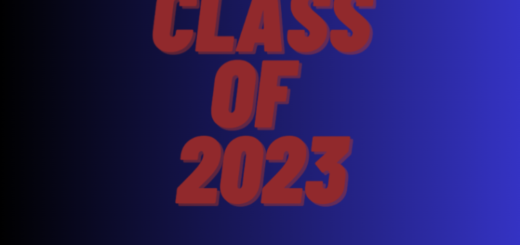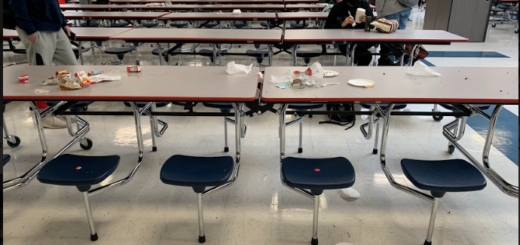Dear future college
Dear Future College,
 Johanna Selmeczy | Conant Crier
Johanna Selmeczy | Conant Crier Hello! You don’t know me yet, nor I you, but I am nonetheless eager to attend your institution. I’m sure that when I get wind of my acceptance, my reaction will be subdued. I’ll be sure to handle it with dignity and nonchalance as I make a seamless transition into young adulthood, my youth now seen through a rose-tinted lens as I cast a ready eye to the horizon.
Now that the pleasantries are out of the way, allow me to reclaim the moniker of a high school student who was just accepted into college.
In reality, I’ll probably scream at the top of my lungs until my voice fails me, fling my arms around my parents until my shoulders are sore, and dance to music only I can hear until my legs give out. I’ll call my friends, my hoarse voice cracking as I try to convey my excitement over the phone, and probably drive to Oberweis to forget about health for a while. I’ll relish in the gargantuan weight that was just lifted from my shoulders that had been there for so long I forgot I was carrying it. I’ll be a kid again, if only for a little while.
Not that you need to know about that. After all, you don’t know me.
Sure, you know what I sent you. But you don’t know me. Not really. All you can see is what I provide to you: my test scores, GPA, extracurriculars, essays, letters of recommendation, class rank, awards, family alumni. The best parts of myself, amplified and carefully chosen to look as closely as possible to the model student, while simultaneously highlighting what makes me “unique.”
The whole admissions process is so enigmatic that I sometimes wonder whether you even know what you’re looking for. For example, the discrepancies between who is admitted with “legacy” status and who isn’t are extremely significant. One study shows that this practice of favoritism has allowed for socioeconomic discrimination against applicants, allowing wealthy students an advantage over their poorer counterparts. I would ask you, then, which do you care more about: merit or money?
Speaking of funds, as I’m sure you’re well aware, somehow you’ve gotten away with charging students for applying to your school. The national average cost of an application is $44, and some institutions charge over $100. Just to apply. Even if I get rejected, that fee is lost to the abyssal maw of the school’s bank account.
And that’s not even to mention the cost of tuition. Although I certainly appreciate the recent “discounts” that you’ve provided due to the global pandemic, the fact of the matter is that the cost to go to college has been steadily increasing since 1980. In the 1980’s, the average cost of tuition to attend a private university was $9,882 per semester. Nowadays, students are lucky if their dorm fees cost that little, with the average national cost of room and board at $11,500 for public schools and $12,990 for private universities.
Americans currently owe $1.71 trillion in U.S. student loan debt, and there are 44.7 million Americans strapped with this economic burden. That’s $739 billion more than the national credit card debt.
I’m sixteen years old, and I have to weigh whether going to my dream school is more important than my parents’ retirement.
I’m sixteen years old, and I have to undergo a process that strips me of my individuality and degrades me to test scores and racial quotas.
I’m sixteen years old, and I have to decide what I want to do for the rest of my life.
Well, we all have to grow up sometime, right?
Look, there isn’t a “fix all” solution to this. And, to be fair, you’ve made some solid strides in the right direction. The practice of the holistic review as a way to better assess the circumstances of the whole applicant, although still veiled in mystery, is a good first step. Also, the availability of the FAFSA (Free Application for Federal Student Aid) is a lifesaver for many in order to escape the ruinous mountains of student debt.
However, you have a long way to go before we’ll be able to reach a mutually beneficial equilibrium. Full transparency throughout this whole process would be the next big step. But first, you need to sort out your priorities. You’re under more scrutiny now than ever, what with the college admissions scandal and affirmative action court cases starting to air your dirty laundry.
So, whoever you are, I hope I don’t regret my decision to accept you. Thank you for your consideration, I’m looking forward to our future correspondence.
Regards,
Johanna Selmeczy




Recent Comments